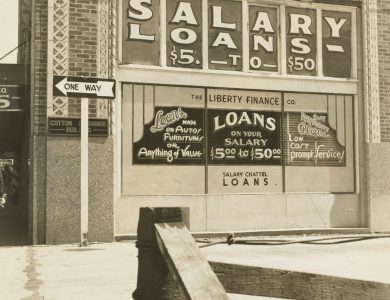
In the vast universe of plastic companions nestled in our wallets, two titans often vie for supremacy: cashback cards and travel rewards cards. Each promises a unique set of perks, enticing us with visions of financial gain or exotic adventures. But in the bustling world of consumer finance, where every swipe counts, which card truly reigns supreme? This article delves into the intricate dance between these two popular choices, exploring the allure of cash in hand versus the call of the open road. Whether you’re a savvy saver or a globe-trotting dreamer, join us as we navigate the nuanced landscape of rewards cards, helping you determine which path aligns best with your lifestyle and aspirations.
Choosing Between Cashback and Travel Rewards Unveiling the Key Differences
In the realm of credit card rewards, understanding the nuances between cashback and travel rewards can greatly enhance your financial strategy. Cashback cards typically offer a straightforward value proposition: earn a percentage back on every purchase, which can be used to offset future expenses or directly deposited into your bank account. This tangible benefit makes them appealing to those who prioritize simplicity and instant gratification. Meanwhile, travel rewards cards often provide points or miles for each dollar spent, which can be redeemed for flights, hotel stays, and other travel-related expenses. This can be particularly beneficial for individuals who travel frequently and are looking to maximize their savings on trips.
- Flexibility vs. Specificity: Cashback offers flexibility as it can be used on anything, whereas travel rewards are often restricted to travel-related expenses.
- Earning Potential: Travel rewards cards might offer higher earning potential through partnerships with airlines and hotels, but require strategic planning to maximize benefits.
- Annual Fees: Travel cards often come with higher annual fees compared to cashback cards, justified by perks like lounge access or travel insurance.
Ultimately, the choice hinges on personal spending habits and lifestyle preferences. Evaluate your financial goals to determine which card aligns best with your needs.
Analyzing the Financial Benefits Understanding How Each Card Saves You Money
When it comes to evaluating the financial advantages of credit cards, it’s crucial to delve into the unique ways each type of card can enhance your savings. Cashback cards offer a straightforward benefit: a percentage of your purchases is returned to you as cash. This can be especially beneficial for those who spend heavily on everyday expenses such as groceries, gas, and dining. Imagine a card offering 2% cashback on all purchases; this means that for every $500 spent, you earn $10 back, effectively reducing your monthly expenses.
On the other hand, travel rewards cards transform your expenditures into opportunities for future adventures. These cards typically reward users with points or miles that can be redeemed for flights, hotel stays, or even travel upgrades. Consider the potential savings if you frequently travel for business or leisure. Some cards also provide valuable perks like free checked bags, airport lounge access, and travel insurance, which can significantly offset travel costs. Here’s how each card type might save you money:
- Cashback Cards:
- Earn a percentage back on all purchases.
- Redeemable as statement credits or direct deposits.
- No need to strategize on point usage.
- Travel Rewards Cards:
- Accumulate points or miles for travel expenses.
- Unlock travel-related benefits and discounts.
- Potential for greater value if redeemed wisely.

Lifestyle Compatibility Finding the Card That Matches Your Spending Habits
In the quest to find the perfect credit card, understanding your lifestyle and spending habits is crucial. If you’re someone who frequently finds themselves booking flights and exploring new destinations, a travel rewards card might be your ideal match. These cards often offer points or miles for every dollar spent, along with enticing perks such as free checked bags, airport lounge access, and hotel upgrades. However, they might come with annual fees, so it’s important to weigh these benefits against your travel frequency and the potential savings.
On the other hand, if your spending is more grounded in everyday purchases like groceries, gas, and dining out, a cashback card could be more beneficial. These cards typically offer a percentage of your spending back in cash, providing a straightforward reward structure. Key advantages include:
- No need to track points or miles.
- Direct financial returns that can be used for any purpose.
- Often no annual fees, making them a cost-effective option.
Ultimately, the best choice depends on aligning the card’s benefits with your unique spending habits to maximize value.

Expert Recommendations Making the Smart Choice for Your Wallet
When it comes to selecting a card that aligns with your financial goals, understanding the nuances of each option is crucial. Cashback cards offer a straightforward reward system, typically providing a percentage back on every purchase. These are ideal for those who prefer simplicity and immediate benefits. With cashback cards, you can often find:
- Flat-rate cashback: A consistent percentage back on all purchases.
- Tiered rewards: Different percentages based on spending categories, such as groceries or gas.
- Rotating categories: Higher cashback on certain categories that change quarterly.
In contrast, travel rewards cards cater to the wanderlust in you, offering points or miles that can be redeemed for flights, hotels, and other travel-related expenses. These cards usually come with additional perks like:
- Airline or hotel loyalty program points: Earn and redeem within specific brands for enhanced benefits.
- Travel insurance and protection: Peace of mind during your adventures.
- Exclusive travel experiences: Access to airport lounges and priority boarding.
Ultimately, the choice between cashback and travel rewards cards should be driven by your lifestyle and spending habits. Whether you’re a frequent traveler or someone who values tangible cash returns, aligning your card choice with your personal financial goals will ensure you maximize the benefits.



